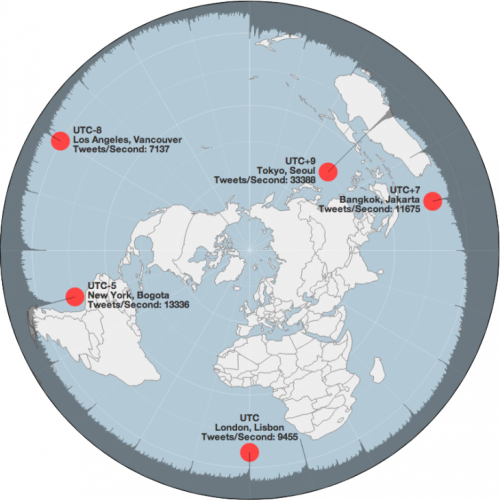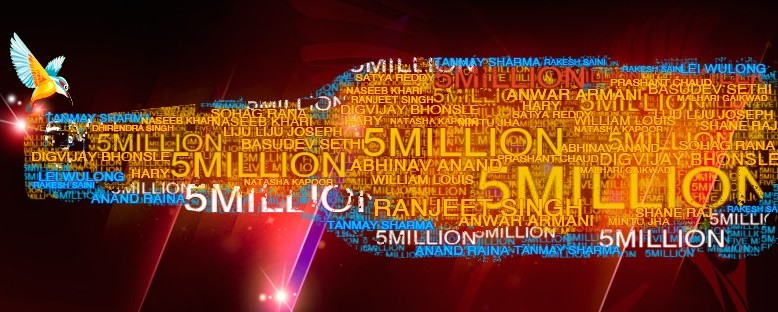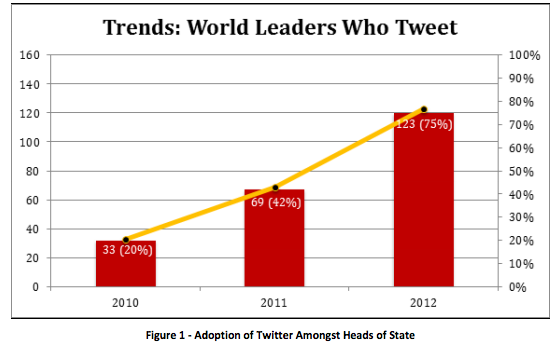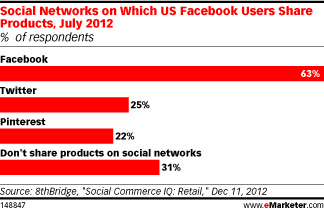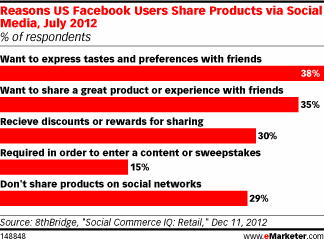Five Friday Facts #59

Japan & Korea set highest number of tweets on New Year’s Eve
Twitter is big in Japan and Korea, and this was evident when users logged 33,388 tweets per second at the stroke of midnight in Tokyo and Seoul, setting a new record and registering twice the volume generated at midnight in New York and Bogota. Twitter previously reported a record volume of 327,000 tweets per minute when US President Barack Obama was re-elected though an earlier record was attributed to Japan which chalked up 25,088 tweets per second during a screening of Anime ‘Castle in the Sky’ in December 2011. Though Twitter’s data is not location-specific, the volume measured serves as an indicator of the popularity of Twitter within the Japanese and Korean timezone. This indicates a promising development given Twitter’s commitment to expand its presence in Japan and Korea by opening local offices in both countries.
Sina Weibo users set a new record of 729,571 messages per minute
New Year’s Eve 2013 messages sent via social media channels seem to be setting records in China too with Sina Weibo users chalking up 729,571 messages per minute. The numbers surpassed the previous record of 481,207 messages per minute (averaging 32,312 messages per second) set during Chinese New Year 2012 by 52% and it is expected that a new record will be set during this year’s celebrations. In contrast, Twitter recorded 327,000 tweets per minute during US President Barack Obama’s re-election and 33,388 tweets per second at the stroke of midnight on New Year’s Eve 2013 in Japan and Korea. The increasingly competitive business landscape has prompted Sina to restructure its business to focus on Weibo, hailed as China’s answer to Twitter, in an effort to garner profits from the microblogging network.
Kingfisher is 4th Indian brand to reach 5 million fans on Facebook
Leading Indian beer brand Kingfisher recently reached 5 million Facebook fans and celebrated this milestone by thanking fans for their support. This is testimony to the fan page’s popularity as it was rated by Social Bakers as one of the top pages globally with a page score of 68% in November 2012. Kingfisher was one of the early adopters for digital media and has been using it to engage its fans and build a community since 2007. By posting a variety of interesting content and user generated material, the page has seen its fan base grow from 2 million in 2011 to 5 million in 2012, an impressive growth rate of 150% within a year.
75% of the world’s heads of states are on Twitter
Twitter has much to be proud of as studies showed that 75% of the world’s heads of states have a presence on the social network. Findings from a recent survey conducted by the Digital Policy Council (DPC) showed that 123 out of 164 countries have a head of state with a personal or official government Twitter account. The most popular world leader on Twitter was found to be US President Barack Obama with 25 million followers while Venezuelan Hugo Chavez ranked second with 3.5 million followers. TechCrunch is still attempting to clarify with DPC which 164 countries were selected out of the 193 states recognized by the United Nations for the survey so do lookout for more updates.
Facebook rules for social sharing of product information
In spite of the rise of Pinterest and Twitter as driving forces in the ecommerce arena, a recent study of Facebook users in the US showed that they were 63% more likely to share information on products via Facebook than other channels. Granted that the survey results will be skewed towards Facebook since the sample population comprises Facebook users, the figures seem to indicate that these users are more willing to draw attention to products via the social network.
The survey revealed that the leading reason for sharing products on social media stemmed from a yearning on the part of users to share their individual tastes with people within their networks (accounting for 38% of the responses). Other notable reasons include a desire to share a positive product or experience (35% of respondents) and wanting to receive discount or rewards (30% of respondents). However, the number of “Likes” a product receives seems to have limited effectiveness in influencing a purchasing decision with only 36% of respondents saying that it increases their likelihood to buy the product. On a similar note, only 54% of users who ‘Liked’ a page were more likely to buy products from the related brand.
